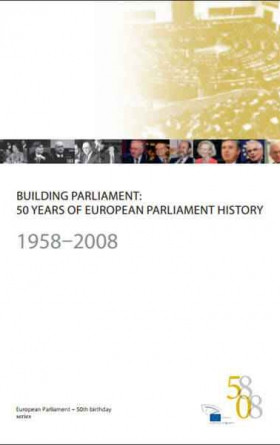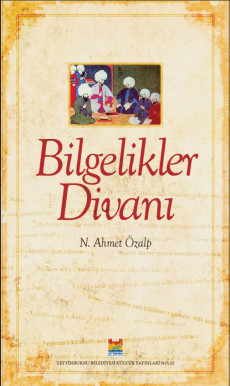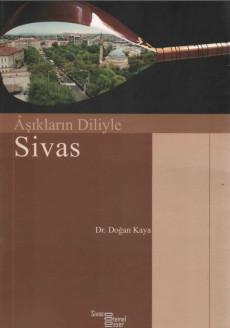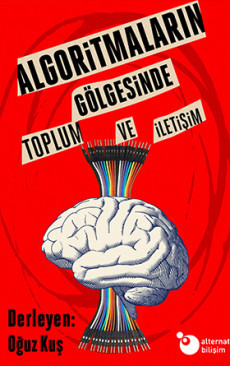Site içi Arama
Site içerisinde ayrıntılı arama yapabilmek için üye olmanız gerekmektedir.

Building Parliament: 50 Years of European Parliament History
- Yazar: Anonim
- Kitap Türü: E Kitap Oku, PDF Kitap indir, Avrupa Birliği
- Gösterim: 2820
0 kişi beğendi
0 kişi okudu
0 kişi inceledi ve yorumladı
0 kişi alıntıladı ve paylaştı
Hakkında
- Yazar: Anonim
- Kitap Türü: E Kitap Oku, PDF Kitap indir, Avrupa Birliği
- Yayınevi: Avrupa Birliği Bakanlığı Yayınları
- İlk Basım Tarihi: 2009
- Sayfa: 300
- ISBN: 9789282323687
- Gösterim: 2820
- Bu kitap Okuryazar’a 4 yıl önce eklendi ve şu anda 0 yorum bulunmaktadır.
Building Parliament: 50 Years of European Parliament History
Building Parliament: 50 Years Of European Parliament History
Introduction
The Eyropean Parliment Reaffirms Its Legitimacy
The European Parliament Asserts Its Political Legitimacy
Direct elections and legitimacy of the European Parliament
From indirect tdirect legitimacy
1979 a democratic revolution: first elections tthe European Parliament
Electoral participation
Nature and relevance of European elections
Electoral standards and representativeness of the European Parliament
Minimum threshold: application and percentage
Number of constituencies
Fixed party lists and preferential voting
Composition of groups within the European Parliament
Increase in the number of MEPs between 1958 and 2009
Political composition of the European Parliament (1958-2008)
Political groups in the appointed Parliament
Groups that emerged following the first direct elections
Groups that nlonger exist
By its involvement in European representative democracy
European and national parliaments and the democratic deficit
The rise tpower of the EP
From 1958 t1979: asserting control
From 1979 t2008: institutionalisation of real parliamentary control
The gradual mobilisation of national parliaments
Parliaments with binding powers
Parliaments without direct coercive measures
The European Parliament and national parliaments at the service of European democracy
Bilateral parliamentary cooperation
Multilateral parliamentary cooperation
The Convention method
The European Parliament Establishes Its Legitimacy By Opening Up TCivil Society
MEPs: from constituencies tChamber
First and foremost elected representatives
Just like any other elected representative?
Lobbying in the European Parliament
Access tthe European Parliament
MEPs willing tdeal with interest representatives
The difficulty with regulating lobbying in the EP
The special role of intergroups
The European Parliament and citizens
Citizens' correspondence
Examination of petitions
The European Ombudsman
Visitors and communication policy
Public hearings
The European Parliament opens up tpublic debate
Citizens' forums
The Citizens' Agora
The Battle For The Constitutıoanlisation Of The Union
Parliament advocate of a European constitution (1979-1990)
Parliament's role in preparing a constitution
Parliament's reaction tthe constitutional deadlock (2005-2008)
Conclusion tthe first part
Bibliography
The European Parliament Asserts Its Powers
The role of parliamentary committees
The History Of The European Parliament's Powers
Budgetary powers
From conflict tinterinstitutional partnership
The profound changes brought about by the 1970 and 1975 treaties: the use of the margin for interpretation in terms of the classification of expenditure and MRI
Budgetary peace, the financial perspective and the decisive role of interinstitutional agreements
The budget as leverage tobtain legislative powers
Budgetary powers as a 'driving force': the institutional dimension
Distributive victories: the reconciliation of budgetary and political priorities
The discharge procedure: the budget as a means of political control
The Treaty of Lisbon and the future of the European Parliament's budgetary powers
Legislative powers
Consultation and 'right of postponement'
The 'right of postponement'
Optional consultation versus compulsory consultation
Agenda-setting in the cooperation procedure
The right of vetin the codecision procedure
The codecision procedure
The Council's ability tconfirm its common position
Did codecision increase the European Parliament's influence in the legislative procedure?
The relative influence of the European Parliament and the Council in the context of codecision
Infrequent use of the right of veto
Completion phase
Informal developments
The assent procedure
Association agreements
Accession agreements
Interinstitutional Relations
A history of relations between the European Parliament and the Commission
From 1958 t1979
From 1980 t1995
From 1995 tthe present day
Enhanced political control of the Santer Commission
The BSE crisis and its impact on relations between the European Parliament and the Commission
From financial oversight tthe 'Committee of Wise Men' and the resignation of the Santer Commission
The 1998 refusal tgive a discharge
Appointment of the Committee of Wise Men (1999)
From the resignation of the Santer Commission tthe investiture of the BarrosCommissio,
The lessons drawn from a crisis
The impact of hearings of candidate Commissioners on the composition of the Commission
A greater political role
Future prospects in the context of institutional reform
Interinstitutional Agreements
Interinstitutional agreements or arrangements
Compensating for the shortcomings of the Treaties and facilitating interinstitutional relations
Preparing the content of future treaties
Putting an end tconflict between institutions
Towards budgetary peace
Clarifying comitology
Better lawmaking together
Framework agreements between the European Parliament and the Commission
Extracting new pledges from the Commission
Compensating for the shortcomings of the Treaties
A mutual interest?
The Prodi Commission
The BarrosCommission
Implementation of the 'better regulation' agenda
Finding a balance between representative and participatory democracy
Participating in 'better regulation' measures and monitoring their implementation
Parliamentary Oversight Of The Executive Activity Of The Comission
Relations Between The European Parliament And Other Institutions And Bodies Of The European Union
Relations between the European Parliament and the Council
Written and oral questions
The presence of Council representatives in the European Parliament
Supervision of the common foreign and security policy
Choosing the High Representative for the common foreign and security policy
Practical dialogue on a day-to-day basis
Relations between the European Parliament and other institutions and bodies of the European Union: limited supervision in theory – widespread control in practice
The European Central Bank and the European Court of Auditors: appointment-based control
The European Court of Auditors
The European Central Bank
European agencies and the European Parliament: lack of cohesion and mistrust
Appointment-based control
Information-based control
Budgetary control
The European Ombudsman: a special case
The European Court of Justice: an exception tthe rule
The Infuence Of The European Parliament On The Case Law Of The Court Of Justice
The case law of the Court of Justice and the powers of the European Parliament
Legal action by the European Parliament and its influence on the content of Community policy
The European Parliament and its campaign for citizens' rights
The European Parliament Affirms The Values Of The European Union
Inclusion of the EU's values in the Treaties
The European Parliament's strategy for administering the values of the European Union
The European Parliament And The Fundamental Rights Of Citizens
The fight for the Charter and the European Union Agency for Fundamental Rights; the European Union accedes tthe European Convention on Human Rights
The long road towards the Charter of Fundamental Rights of the European Union
Gradual but vital progress
The active participation of the Parliament in the drafting of the Charter of Fundamental Rights
Parliament's fight tincorporate the Charter intthe Treaty
The fight for the accession of the Union tthe European Convention on Human Rights
European Union Agency for Fundamental Rights
Respect for citizens' rights
The European Parliament in favour of a European Union Agency for Fundamental Rights
The implementation of fundamental rights
Women's rights
Rights of minorities and action for the Roma
The fight against the rise of fascism, racism, xenophobia and anti-Semitism
The fight against homophobia
For an immigration policy that respects human rights
Right tprivacy
The European Parliament, citizens' advocate
Right tinformation
Right of petition
The European Ombudsman
The European Parliament Democratisation And Human Rights Around The World
Campaigning against dictatorships
Former Soviet countries
Hungary
East Germany
Czechoslovakia
Poland
Bulgaria
Romania
Baltic states
Human rights and the USSR
Southern Europe: progress towards democracy
Spain
Greece
Portugal
Parliamentary diplomacy for human rights
Instruments used by the European Parliament tensure respect for human rights
The assent procedure as a means of protecting human rights
The human rights clause
Generalised System of Preferences
Financial instruments as leverage
Political dialogue on human rights
Resolutions and the role of urgent debates
Great causes
The fight against the death penalty
The fight against world hunger
The fight against impunity
Humanitarian aid
Actions in specific regional contexts
Delegations
Election observation missions
Elections in Kosovo
Elections in Ukraine
Elections in the Palestinian Territories
Regional partnerships: ACP, EuroMed, EuroLat
ACP-EU: from Yaoundé tCotonou via Lomé
Euro-Mediterranean Parliamentary Assembly
Eurolat
The European Parliament, a sounding board for universal values
State visits
Near and Middle East
Central and eastern European countries
Iraq
The Parliament, a place of dialogue
The Sakharov Prize
Conclusion
The European Parliament: a parliament like nother?
A Parliament in the making
A third type of parliament?
Building Parliament: 50 Years Of European Parliament History (1958-2008)
Office for Official Publications of the European Communities
Kitap Yorumları
Şu yazılar da ilginizi çekebilir
Kastamonu Yemekleri
Yazar: İrfan Mısırlı, Aydoğan Aydoğdu, Emrah Yaşarsoy, Metin Mızrak
İlk Basım: 2019
Her hakkı saklıdır Okuryazar.com.tr © 2023




